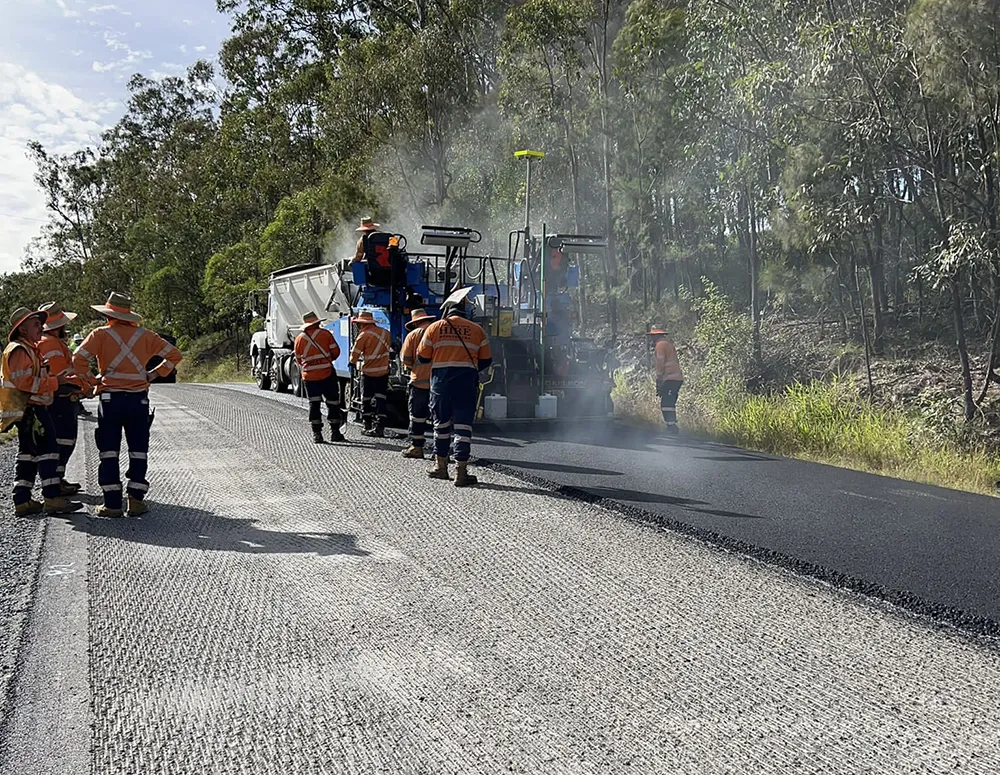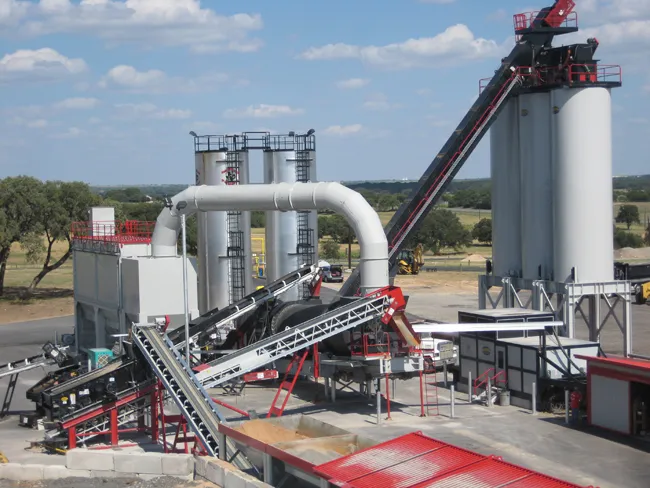Specialist equipment is available for carrying out a variety of important tests on asphalt It is important to know how asphalt will react to various conditions such as heat, cold and traffic loads when it is laid on roads. Project specifications will give detailed criteria of what is required, and companies will either ask outside laboratories to make sure the material meets the specs, or will often carry out such tests themselves with trained staff in an on-site laboratory. This will be equipped with the
July 18, 2012
Read time: 5 mins
Specialist equipment is available for carrying out a variety of important tests on asphalt
It is important to know how asphalt will react to various conditions such as heat, cold and traffic loads when it is laid on roads. Project specifications will give detailed criteria of what is required, and companies will either ask outside laboratories to make sure the material meets the specs, or will often carry out such tests themselves with trained staff in an on-site laboratory.This will be equipped with the machines capable of carrying out a whole series of tests, and these are done at regular intervals with all the data recorded.
Asphalt is the final product of the refining process of crude oil whose lighter constituents are distilled off to yield gas products such as methane, ethane, propane and butane; naphthas (for processing into gasolines); kerosenes (for processing into jet fuels and light diesels), and gas oils (lubricating oils, and fuel oils). Asphalt is basically crude oil with these lighter products removed.
Asphalts are complex chemical mixtures whose compositions vary widely depending mainly on the source of the crude oil and to a lesser degree, the manufacturing process.
As such, there are numerous tests that can be carried out on them, some are fairly simple and others more complex.
For example, one test among many is the determination of the resistance to hardening under the influences of heat and air and to complete this Italian company
"As is well known, bitumen can be considered as a colloidal system consisting of a mix of high molecular weight hydrocarbons dispersed in minor molecular weight hydrocarbons," says Controls.
By the heat and air action, during mixing, laying and rolling, bitumen loses part of the lighter components, at lower molecular weight, and therefore more volatiles [oils].
"Consequently, the binder is affected by a 'short term ageing' after the mixing and laying work. The bitumen content of the bituminous mixes grants usually a complete cover of aggregates by an average thickness of 9-11 microns on a surface of aggregate mix of the order of 5,000-6,000m²/kg. The high mixing temperature, about 150°C, and the over-heated air affects the binder shared in a very thin film and causes an increase of viscosity and stiffness. The effect is particularly evident at the ambient temperatures." Controls explains that by using the RTFOT apparatus it is possible to perform the loss-on-weight test and to provide the sample 'aged' ready for other tests such as softening point, penetration, dynamic viscosity at 60°C, ductility and other tests in order to verify that the hardening data of bitumen falls within the limits fixed by the specifications for road binders.
According to the US-based
Generally, when comparing asphalts, as the softening point increases, the viscosity also increases, the penetration drops and the flash point rises, says the company.
Using various
Viscosity (at a prescribed temperature) is an indication of how thick or thin the liquid asphalt is at various temperatures (measured in poises, centipoises (cps), centistokes (cst) or SSU) and the flash point is the temperature that the heated asphalt will flash (ignite briefly).
Indeed, for testing the softening point of asphalts and tar pitches the 81-B0143 Automatic Ring and Ball apparatus is offered by Controls.
The company says the advanced microprocessor-controlled automatic tester is used to determine the softening point of bitumen using, as the heating fluid, water or glycerol.
"The softening point is taken by the interruption of two light barriers suitably positioned, and it can detect the position of the two balls in an independent way.
The temperature is measured by a PT100 sensor placed in a middle position. During operation a magnetic stirrer with adjustable speed assures temperature uniformity in the vessel, and the current temperature and the barriers' status are displayed. The temperature gradient is strictly maintained conforming to the standards throughout the test by the microprocessor control unit.
"The apparatus allows tests to be performed at two different temperature ranges: with boiled or distilled water (the maximum temperature is 80°C) and with glycerol the maximum temperature is 150°C. At the end of the test, the result data are stored in the internal database, or downloaded to a serial printer or to a PC," says Controls.
The company offers its 81-B0100/D and 81-B0101/D Semiautomatic Penetrometers for penetration of bituminous material.
The devices feature a precise digital measurement system as standard, and the 81-B0100/D is the new standard version proposed with the micrometer vertical adjustment and digital measurement of the penetration.
The 81-B0101/D is the new semi-automatic version proposed also with the micrometer vertical adjustment and digital measurement of the penetration and automatic controller for the penetration time.
Both models are provided as standard with the micrometer vertical adjustment fitted in the column base, offering an easier setting of the penetration needle on the sample cup, and a new digital reading of the penetration with 0.01 mm resolution, an exremely accurate reading for a standard penetrometer device.









